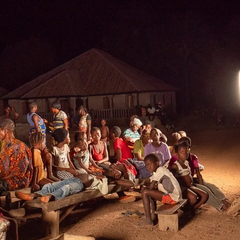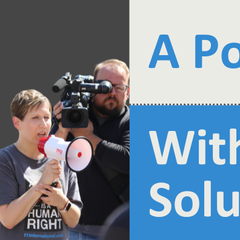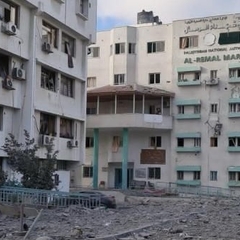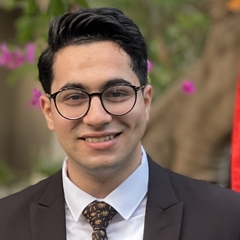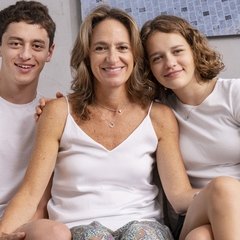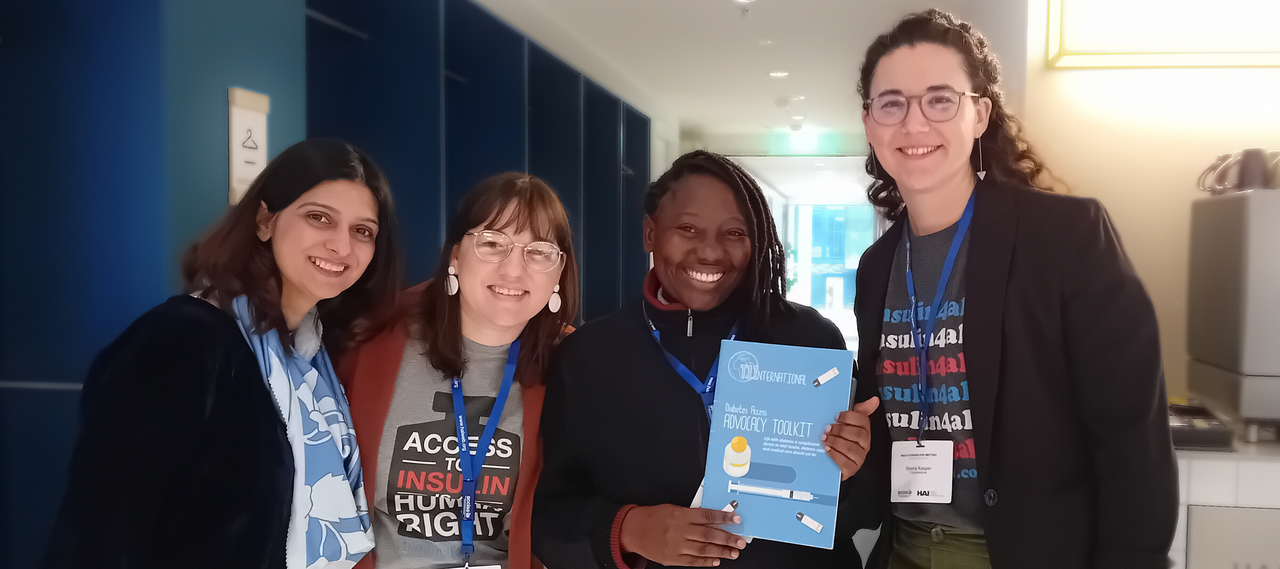
Global Advocacy Success Series: Lucy, Tanzania
14 Feb 2024, 8:16 p.m. in Global Stories by Lucy Johnbosco
I was diagnosed with type 1 diabetes in July of 2000. I had just finished my Primary School Education and was preparing to go to Uganda to pursue my Secondary and High School Education. l wasn't ready to use insulin. l think l was in denial.
In 2007, during my last year in high school, waiting to do my finals, I suddenly got seriously sick. I was on the bus on my way back home to Tanzania. Luckily, I had told the driver of the bus and his assistant that l have type 1 diabetes and that if they decided to send me to the hospital, to not forget to tell the hospital that my blood sugar is high. l also gave them my passport and my phone so that they could communicate with my mama. After several weeks, l woke up in the hospital in Arusha, Tanzania. My mama and aunt were there, but I wasn’t able to recognize them. It took some time, but I was discharged and able to go back home. From there I decided to get serious about managing my diabetes and learn all I could because I did not want to go into a coma from diabetic ketoacidosis ever again.
l started going to the diabetes clinic regularly. My doctor taught me how to manage the condition and introduced me to another person living with type 1 diabetes, Anita, to show me it is okay to live with the condition. l managed to go back to school and complete my finals, which I did well on. I was supposed to go to university, but I decided to find a job first because I knew that medication and treatment of diabetes costs a lot. In order to stay independent and try to cover the costs of my diabetes l got a job in radio, starting as radio presenter and producer.
The challenge of accessing and affording insulin is the main reason I started working after finishing high school. Now l have three different jobs just to earn enough income to pay for my medications. Even still, it is not enough. I also know three other young people with diabetes living in more rural villages who can't access or afford the cost of their insulin, so l share mine with them. I knew from early on that people with diabetes need more of a voice and more advocacy.
In 2010, l started a job at a health institution in Tanzania as Research Assistant. This is when I realised that there is a gap somewhere because the local community has zero awareness about diabetes. In the media, people don’t talk about diabetes the way they talk about other conditions. I started going to schools and to companies to provide education about diabetes. I started asking for media airtime, especially on the programs that have a higher number of listeners. Now, radio and tv stations often come to me whenever they want to talk about diabetes.
After finishing my first degree on Conflict Resolution and Peace Studies in 2014, I realised I wanted to learn some theories of communication in order to reach and talk to different groups of people about diabetes, so I decided to pursue a Masters in Mass Communications in 2015. I now have a column called Maisha na Kisukari, which means Life and Diabetes in Swahili. I am happy to speak proudly about life with diabetes, even with its challenges, and the need for better access and affordability.
I continue to spread awareness wherever I can about diabetes, and in December 2018 l registered the Diabetes NGO Called DICOCO (Diabetes Consciousness for Community) and became a member of Tanzania NCD alliance. This enabled me to continue to grow my diabetes awareness and advocacy efforts. In 2019, l received the diabetes advocacy toolkit from T1International through a connection from the Sonia Nabeta Foundation.
This toolkit helped me and continues to help me a lot in my advocacy activities. It really opened my mind to the fact that anyone can advocate, and it defined the full meaning of diabetes advocacy, and various ways of conducting advocacy activities. It helped me understand how to identify our community’s goals and objectives and how to implement them. Me and my team at DICOCO have been able to better connect and communicate with our diabetes audience, thanks to the toolkit.
DICOCO is a small organisation that does face challenges because of our size and location. We sometimes have limited teaching materials but we always find a way to overcome. This is what life with diabetes is all about: overcoming. I am grateful that I have received some awards for the work I do in my local community, including from the Ministry of Health Tanzania in collaboration with Muhimbili University of Health and Allied Sciences.
Recently, DICOCO became a member of the T1International Global Advocacy Network. This is the diabetes organisation that I most look up to, and I am so excited to continue to learn about diabetes advocacy and fight for the rights of people with diabetes in my town and country. I know that as part of the T1International network and global diabetes community, I can keep making changes to improve access to insulin for all.




